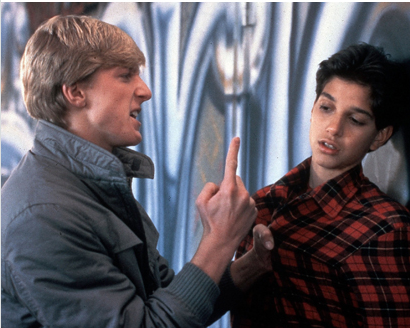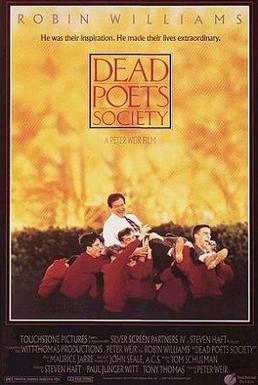To refer to this list as the 7 greatest "self-esteem building" songs of all time is a bit of a misnomer, for the notion that one should sing a song to themselves about how great they are, or offer counseling advice on how to elevate one's self-importance is not what is traditionally done in music. In the past, songs were written on any number of subjects, none of which involved psychological navel gazing. So this list really only covers the last four decades, because prior to that time it would have been inconceivable to the balladeer to write a love song to himself (actually it would have been an abomination). If we are to give this self-nurturing mentality a charitable read, we should say that many such individuals are simply trying remedy the apparently popular trend of self-loathing. Yet the real question for these Oprah disciples is whether or not going to a spa and declaring one's undying love for one's self is the key to escaping the aforementioned pit of despair.
7. Firework - Katie Perry
The worst aspect of the self-help mentality is also the best part. For example, it is quite commendable to offer encouragment to someone in need of it; "Do you ever feel like a plastic bag drifting through the wind, wanting to start again? Do you ever feel so paper thin, like a house of cards, one blow from caving in?" So why is there a problem? Because she provides a remarkable diagnosis, but fails to offer any real path to health other than; "Hey, you're great, and all you have to do is believe it!" That is not to say that many young people wouldn't be comforted by such words. Indeed, anytime we feel that someone understands us it can bring great solace. However, if your doctor after correctly diagnosing your disease then told you that the prescription for health was simply to "feel better," then you might get a second opinion. In the same way, no one can be commanded to "love themselves" or to accept that they are "beautiful in every single way" by decree of a pop artist. Quite the opposite; one ceases to feel "like a waste of space" when they realize that their sense of worth comes not from themselves but from God, and one ceases to feel like they are "buried deep" when they get outside of themselves and reach out to people who have an even greater need than they- which brings me to my biggest beef with all of this inner-child worship. The key to feeling like a "firework" is not through self-admiration, nor is it by way of glorifying yourself and realizing how wonderful you are. The solution is the exact opposite of what is suggested in this and other songs. What makes people so miserable is not their failure to think about themselves enough (especially adolescents). That's practically all they do. Rather it is their failure to move beyond that terrible self-pitying isolation and into the world of others. If you want to "ignite the light" then do it by being a "light" to others, not by basking in the flame of your own personal glory.
6. Hero - Mariah Carey
It is not a tremendous surprise that artists who themselves spend a great deal of time looking in the mirror, should try to convince us that we too should do the same. In fairness to Ms. Carey, however, "Hero" is not so much about admiring one's self, as it is about convincing her listeners (and perhaps, sniff sniff, herself) that they have something "special in their soul". And that would not be so bad were she only recommending that her listeners keep their chin up, but alas, it goes well beyond that; "You can find love if you search within yourself and the emptiness you feel will slip away... And then a hero comes along with the strength to carry on, and you finally see the truth, that hero lies in you." The implication in this song is that one really doesn't need other people in the end (except a Diva who writes a song about it). All they need to do is "search within themselves" (really deeply) for a magical wellspring of love and hope; a wellspring that for some unexplained reason is there in the first place. I thought that the point of the song was that these sad individuals ultimately felt terrible about themselves. So why would it make sense for them to look even deeper into the pit of despair? Perhaps if she explained why there is something "special" within each of us I could make sense of it, but indeed there is no rhyme or reason; it's simply there because it's there. When I hear this song it reminds me of the type of person that will only say "bless you" because they want to offer you a blessing without acknowledging the one who blesses, or someone who tells you to have "faith", but never tells you in what. Incidentally, if this song were looking for a date (though it seems quite pleased to go stag), I would probably set it up with Five For Fighting's "Superman", for he too is a "hero" who is looking for "special things inside of himself."
5. Big Girls Don't Cry - Fergie
4. Dance - Lee Ann Womack
3. Silent Lucidity - Queensryche
Who would ever expect a metal band to be on the list of self-help songs? But remember- most 80's metal bands also had power ballads. Silent Lucidity was Queensryche's so called "power ballad." Even so, what makes it different from other power ballads is that it is not about romantic love, but about exploring one's dreams (literally). Heavy metal and the New Age (which is the spiritual arm of the self-help sensation) are strange bedfellows, but they do have their commonalities. The New Ager is into mysticism and the occult, while heavy metal certainly dabbles in the mysterious forces behind things. In the case of Queensryche, their little detour into the realm of dreams, stands out if only because, well, it really does stand out. Indeed, nothing else they wrote could be classified as a "how to" manual on dreams, or be mistaken for something you might find in the New Age section of a book store. "Hush now don't you cry, wipe away the tear drops in your eyes. You're lying safe in bed, it was all a bad dream spinning in your head... So here it is another chance, wide awake you face the day your dream is over... or has it just begun?" Do you have chills now? I know I do. This should be the theme song to the movie Inception. At any rate, he calms the little boy in the song by insisting that he can help him achieve "dream control" if he will only sets his mind to it. Yet what is not calming about this song is a series of creepy voices in the background, coupled with the lead singers intentionally Pink Floyd-esque vocal stylings. It is, I am guessing, their attempt to create a dream-like atmosphere; "If you open your mind for me, you won't rely on open eyes to see. The walls you built within come tumbling down and the new world will begin." I'm glad to know that I have a dream expert here with me who can help me perfect and master the art of dream manipulation: a rather trippy prospect. Why am I trying to achieve "dream control" again? Is it so that I can manipulate reality and bend it completely to my will, is that the important lesson here? Dreams are obviously important to us, but I always thought that the awe-inspiring thing about them was that they went beyond our imagination, not that they were constricted to it. Yet that is precisely what self-help is all about, bending everything to fit your vision of reality. The chorus of the song is the spookiest of all, though I think it is supposed to be soothing; "I will be watching over you, I will protect you in the night... I'm smiling next to you in silent lucidity." Yeah, I'm about as comforted as a boy who is watched over at night by a smiling clown. Who's watching over me again? Is he a parent (best case scenario), is the singer making himself into God (worse), or is it some dream expert hired to loom over me as I sleep at night and make sure I dream the right way? Whatever the case, this emphasis on controlling your dreams is right up the alley (or aisle) of the self-help section of any bookstore.
2. I've Never Been To Me - Charlene
This song would be #1 on the list were it not for the fact that, far from telling herself how wonderful she is, "Charlene" is actually criticizing herself and the life she has led. She is not saying that a little more regard for herself is the perfect tonic for happiness, she is lamenting that she wasted her early years on a dissolute lifestyle. This is hardly the recipe for self worship. Rule #1 in the book of Self Help is you never blame yourself when there is a perfectly good relative to blame (or dead horse to beat). The key point is this: everything that is right in your life is because of you, and everything that is wrong is because of someone else. That is the yellow brick road of happiness. You are God, and everyone and everything else should just accept this glorious fact! Unfortunately, Charlene grew up in an era where one inevitably attempts psychologize everything and use phrases that are more at home in the theatre of pop psychology than a ballad about regret; "Oh I've been Georgia and California and anywhere I could run. I took the hand of a preacher man and we made love in the sun. But I ran out places and friendly faces because I had to be free. I've been to paradise but I've never been to me." It is a noble and understandable sentiment to want to go back and have a "Come to Jesus" talk with yourself, especially at those times when you were most reckless. However, having a conversation with yourself in a song can't help but to feel a little like the type of role playing exercise that a psychiatrist (or New Age guru) employs in order to familiarize you with your inner child; "Now I want you to imagine that you are here with yourself at age seventeen (these are my lyrics not hers). Talk to yourself and give yourself a little advice." It feels, well, just so 1970. Your heart can't help but to break when she speaks about how she weeps for "children she will never have," but the problem with her weeping is that she is not doing it for her children unborn, but for the fact that those children would have "made her complete". Which leads to, in my opinion, the most glorious self-help line of any song. Charlene has been to paradise, but you know where she's never been? "She's never been to me." I get what the sentiment is supposed to represent, but I have to disagree profoundly with her conclusion. The problem is not that she hasn't "been to herself." From the sound of it that's practically all she's been to. There is a reason the phrase, "I've never been to me", is grammatically incoherent, because it is a logical contradiction. The primary way you "get to you" is not by grieving over children that would have made you complete, but by grieving for all the people that you could have unselfishly served. Because she has spent all of her time serving herself, she has, as is noted Scriptures, lost herself; "for those who save their life will lose it, and those who lose it for my sake will save it." Now if she could just turn some of that 70s solipsism into something a little more pro-active, something which employs her regret in a more reform-minded way rather than despairing over a past she cannot change, then she may actually get somewhere.
1. The Greatest Love of All - Whitney Houston
If Satan wrote a love ballad this would be it. I say this with full recognition that people romanticize this song about as much as they do John Lennon's Imagine. Originally performed by George Benson in the late 70s, Ms. Houston was the one who ultimately made it famous (kind of like "I Will Always Love You"). The song starts off innocently enough, celebrating youth and recognizing their role in building the future; "I believe the children are our future, teach them well and let them lead the way, show them all the beauty they possess inside..." I'm with you so far. "Give them a sense of pride to make it easier. Let the children's laughter remind us how we used to be..." OK, now the message is a little foggier. What is the topic again? "Everybody's searching for a hero. People need someone to look up to. I never found anyone to fulfill my needs; a lonely place to be, and so I learned to depend on me." This has to be one of the weirdest trojan horse songs of all time, for at one stage we are musing about the beauty of childhood, and then the next moment we are talking about how the songwriter never found anyone worthy of his trust and so concluded it was best to look up to himself (I'm trying to imagine what that would look like); "I decided long ago never to walk in anyone's shadow, if I fail if I succeed, at least I live as I believe. No matter what they take from me they can't take away my dignity..." Now it sounds like we're getting a little paranoid. But fear not, oh mighty navel gazer, thankfully you've got yourself to protect you! "Because the greatest love of all is happening to me. I found the greatest love of all inside of me. Learning to love yourself it is greatest love of all." Forgive me, but I have the greatest video montage of all in my mind for this (somebody please make it). It would include a series of images representative of what is being spelled out here. First you would see a man in a field with his arms wrapped around himself, dancing and leaping for joy. Then you would see a man in a straight jacket embracing himself in a mental institution. Then the scene would shift to a woman holding flowers, boldly proclaiming that she bought flowers for herself because she deemed herself more than worthy. The video then would conclude with a recent news story about a women who recently proposed to and married herself with many emotional onlookers. There is a lot to be said for recognizing your own worth and value, but is that really achieved by becoming Stuart Smalley (see above)? We should no doubt love ourselves in the sense that we should recognize who and what we were made for. But whatever you do, please do not declare that worshipping yourself is the "greatest love of all." Worship the moon for all I care, but please do not light incense to yourself. By the way, I always thought that the greatest love involved laying one's life down for one's friend or dying for some cause greater than yourself, but I could be wrong. How can anyone be so brazen as to suggest that the ultimate goal in life is to be selfish? Can you really die for yourself? Such is the nature of the self-help genre that even when it acknowledges God, God tends to look suspiciously like ourselves.


















